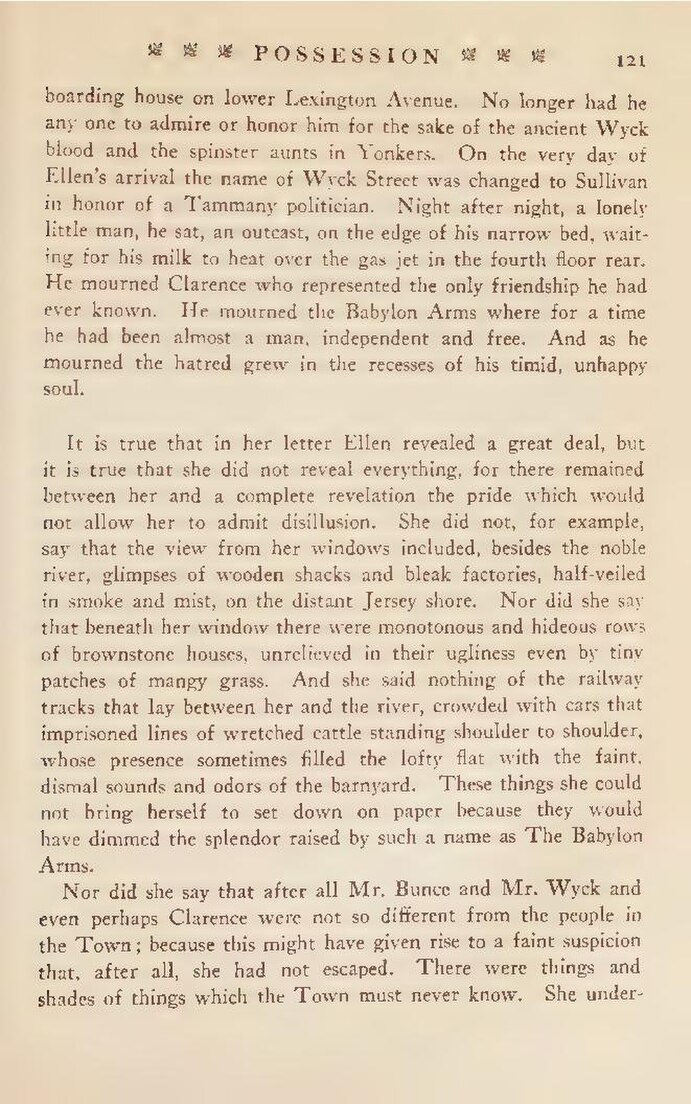boarding house on lower Lexington Avenue. No longer had he any one to admire or honor him for the sake of the ancient Wyck blood and the spinster aunts in Yonkers. On the very day of Ellen's arrival the name of Wyck Street was changed to Sullivan in honor of a Tammany politician. Night after night, a lonely little man, he sat, an outcast, on the edge of his narrow bed, waiting for his milk to heat over the gas jet in the fourth floor rear. He mourned Clarence who represented the only friendship he had ever known. He mourned the Babylon Arms where for a time he had been almost a man, independent and free. And as he mourned the hatred grew in the recesses of his timid, unhappy soul.
It is true that in her letter Ellen revealed a great deal, but it is true that she did not reveal everything, for there remained between her and a complete revelation the pride which would not allow her to admit disillusion. She did not, for example, say that the view from her windows included, besides the noble river, glimpses of wooden shacks and bleak factories, half-veiled in smoke and mist, on the distant Jersey shore. Nor did she say that beneath her window there were monotonous and hideous rows of brownstone houses, unrelieved in their ugliness even by tiny patches of mangy grass. And she said nothing of the railway tracks that lay between her and the river, crowded with cars that imprisoned lines of wretched cattle standing shoulder to shoulder, whose presence sometimes filled the lofty flat with the faint, dismal sounds and odors of the barnyard. These things she could not bring herself to set down on paper because they would have dimmed the splendor raised by such a name as The Babylon Arms.
Nor did she say that after all Mr. Bunce and Mr. Wyck and even perhaps Clarence were not so different from the people in the Town; because this might have given rise to a faint suspicion that, after all, she had not escaped. There were things and shades of things which the Town must never know. She under-
